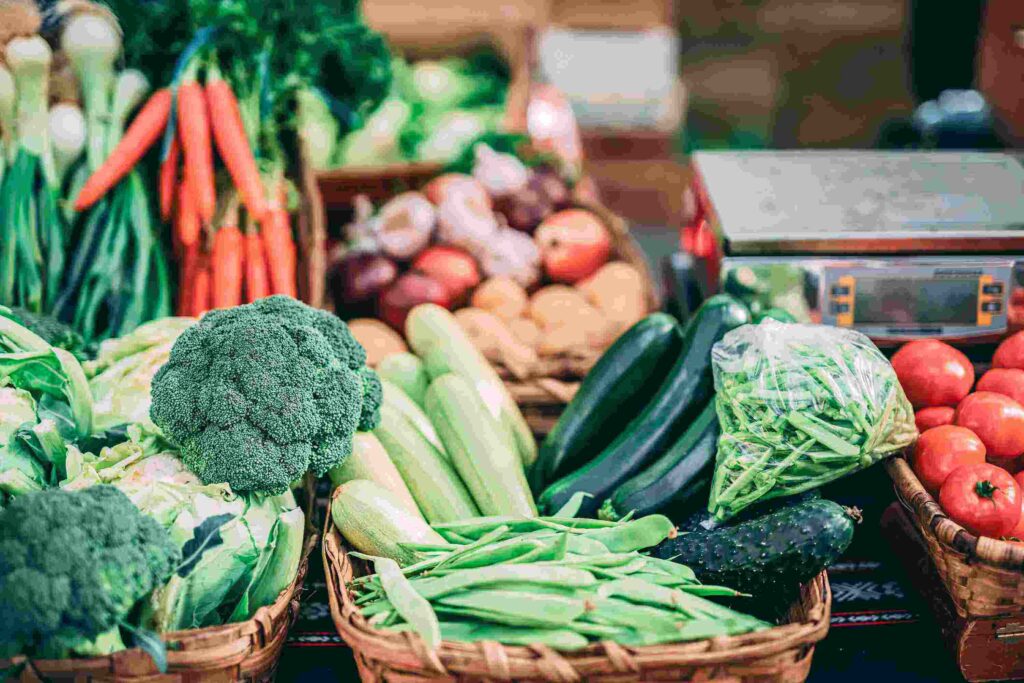In a world increasingly concerned about environmental sustainability and ethical consumption, showcasing sustainable food practices has become a crucial aspect for food brands. Consumers are not only seeking delicious and nutritious options, but they are also conscious of the impact of their food choices on the planet. As a result, highlighting sustainable practices not only enhances a brand’s reputation but also aligns it with the values of modern consumers.
5WPR Insights
What is sustainable food?
Sustainable food practices encompass a range of actions that prioritize environmental and social responsibility in food production, distribution, and consumption. These practices aim to minimize negative ecological impacts, conserve resources, support local communities, and ensure the well-being of workers and animals involved in the food supply chain.
Environmental conservation
Reducing carbon emissions, minimizing water usage, protecting biodiversity, and promoting organic farming methods to maintain ecosystem health.
Ethical treatment
Ensuring humane treatment of animals, providing fair wages and safe working conditions for laborers, and supporting ethical farming practices.
Local sourcing
Purchasing ingredients from local farmers and producers to reduce transportation distances and support local economies.
Reducing food waste
Implementing strategies to minimize food waste throughout the supply chain, from production to consumption.
Healthy ingredients
Offering nutrient-rich and minimally processed ingredients that promote personal health and well-being.
Transparent communication
Openly communicate the brand’s commitment to sustainability through various channels, including social media, websites, packaging, and marketing materials. Share information about sourcing practices, ingredient origins, and any certifications obtained.
Engaging visuals
Use visuals to showcase sustainable practices. Share images and videos of eco-friendly packaging, organic farms, renewable energy sources, and ethical farming methods. Visual content is more likely to resonate with consumers and leave a lasting impression.
Storytelling
Share stories of the people behind the products—the farmers, artisans, and producers. Highlight their dedication to sustainable practices and their impact on local communities.
Educational content
Create informative content about sustainable food practices. Blogs, articles, and social media posts that discuss the benefits of organic farming, the importance of biodiversity, or the value of supporting local economies can educate consumers and align them with the brand’s values.
Certifications and partnerships
Highlight any certifications the brand holds, such as organic, fair trade, or non-GMO. Collaborate with sustainability-focused organizations to demonstrate the brand’s commitment to ethical and responsible practices.
Patagonia Provisions example
Patagonia Provisions, a food brand under the renowned outdoor clothing company Patagonia, is a stellar example of showcasing sustainable food practices. Their approach involves prioritizing ingredients sourced from regenerative farming practices and supporting soil health and local ecosystems. The brand uses environmentally friendly packaging, focusing on reducing waste and utilizing materials with a low environmental impact. Patagonia Provisions provides detailed information about the origins of their products, including the farms and fisheries they work with. This level of transparency builds consumer trust. The brand actively engages in conversations around sustainable food systems and advocates for policies that support responsible agriculture. The website of Patagonia Provisions features articles and resources about regenerative agriculture, ethical sourcing, and the importance of preserving biodiversity. There are plenty of things that companies can learn from the strategies that Patagonia Provisions has been implementing. It shows other brands that authenticity is crucial in sustainable branding. Ensure that the brand’s actions align with its messaging to build trust with consumers. Incorporate sustainable practices into the brand’s core identity, so it’s not just a marketing strategy but a genuine commitment. Educate consumers about sustainable practices and inspire them to make ethical choices through the brand’s storytelling. Be transparent about the supply chain, sourcing methods, and production processes. Consumers appreciate brands that are open about their practices. Finally, sustainability is a journey, not a destination. Continuously evolve and improve the practices, and keep the consumers informed about the brand’s progress.
Discover more articles from Ronn Torossian:
Ronn Torossian on Facebook
Ronn Torossian on DMNews
Ronn Torossian on Agility PR
Ronn Torossian on Pinterest

More PR Insights
PR Strategies for Founder Comebacks: A Guide to Reputation Recovery
How Proactive Communication Shapes Successful Legal Dispute Outcomes
Using Zero-Click Content in PR Strategies